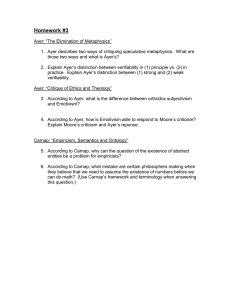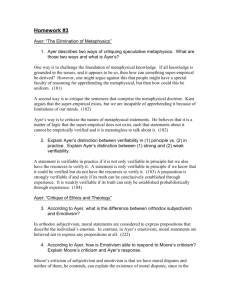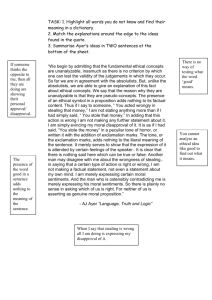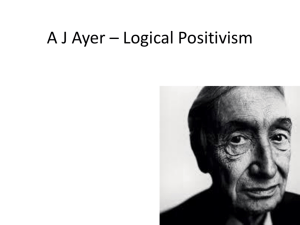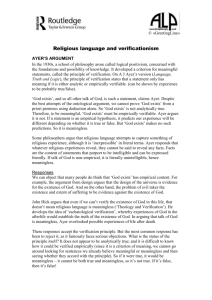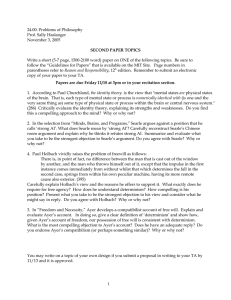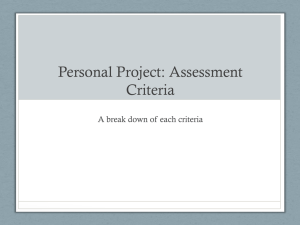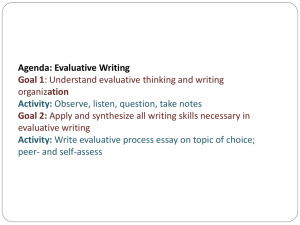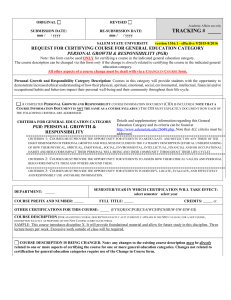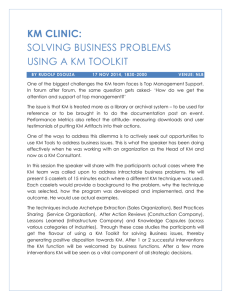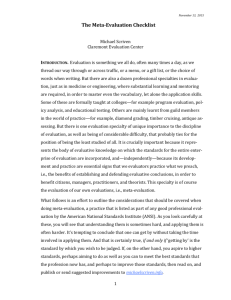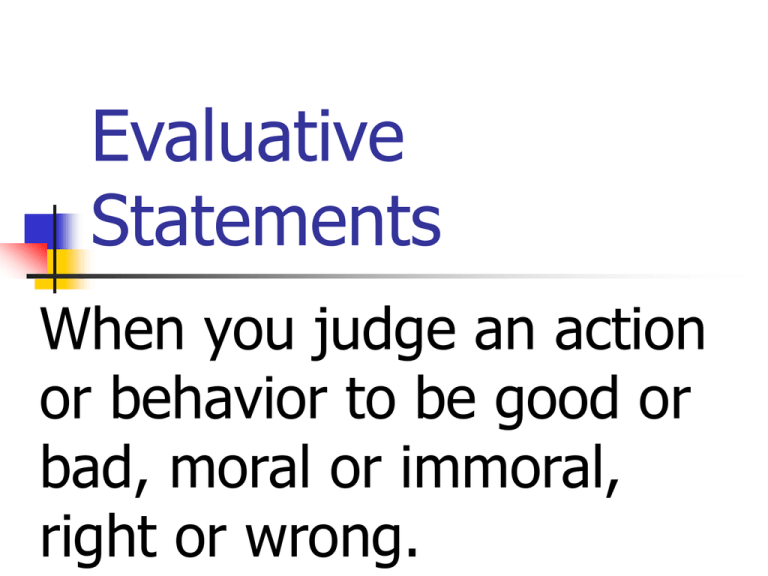
Evaluative
Statements
When you judge an action
or behavior to be good or
bad, moral or immoral,
right or wrong.
Your judgment about the
positive or negative worth or
value of an act, behavior,
object, or event.
When you prescribe what
should or ought to be done or
when you state what actions
are obligatory or prohibited
Pursuing excellence in everything
you do is good.
Sex outside of marriage is a sin.
Cheating on your partner is bad.
-- You ought to practice what you
preach.
Thou shall not kill.
Abortion should be legalized in
the Philippines.
The Logical Positivist’s View
Evaluative statements are meaningless
because they are neither true or false
Simply because these statements cannot be
guaranteed by the two sources of knowledge
therefore cannot be verified under either
Correspondence or Coherence Theory of
Truth
No cognitive content thus cognitively
meaningless
The Logical Positivists (Logical
Empiricism)
Based their beliefs/tenets on the early
Wittgenstein
Members: the Vienna Circle by Moritz
Schlick including Rudolf Carnap, A. J.
Ayer (Britain); Sympathizers: Albert
Einstein, Niels Bohr
Acc. to Rudolf Carnap
"the elimination of metaphysics through
the logical analysis of language."
The idea was that, once people were no
longer plagued by metaphysical nonsense
(strictu sensu), they would confine
themselves to verifiable, scientific
statements on the one hand, and poetry
on the other, and cease to act like mad
beasts.
Emotive Theory of Meaning
by A.J. Ayer
You acted wrongly in stealing money.
Is the same thing as saying:
You stole the money.
In adding the term wrongly, one is merely
evincing your moral disapproval of
stealing and as such, have not added
any factual content to the statement.
Ethical Statements are pure
expressions of feelings & as such
do not come under the category
of truth & falsehood. They are
utterances that are unverifiable
for the same reason that a cry of
pain or a word of command is
unverifiable—because they do
not express genuine propositions.
Alfred Jules Ayer in
Language, Truth & Logic
P.H Nowell-Smith
Ethical terms as well as ethical judgments have
different roles.
“They are used to express tastes and
preferences, to express decisions &
choices, to grade & evaluate, to
advice, to admonish, warn,
persuade & dissuade, to praise,
encourage & reprove, to prolong &
draw attention to rules….”
Evaluative Statements
The statements may be shared by the
public, a group of individuals, the society in
general and not just mere personal
sentiment.
They derive their meaning from various
language games in which they are accepted
as norms of behavior.
Part of the intra & inter subjective consensus
of players in a language game.
Pragmatic Criterion of Truth
States that a proposition is true if
it leads to good and practical
consequences. And false, if not.
Workability, satisfaction,
consequences, and results are the
key terms.
Problems with the Pragmatic
Criterion of Truth
Relativism
The “good” can vary from one
individual to another.
This means that the criterion
doesn’t pass the inter
subjectivity test.

